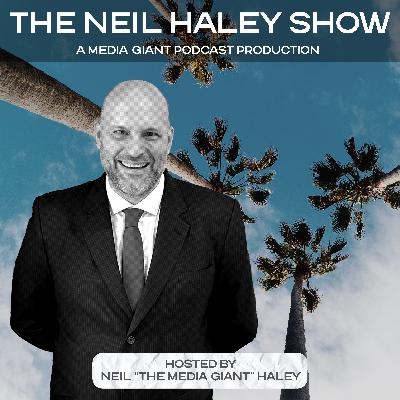"Justice, Education & Tax Revolution" Guests: Alan Page, Sharisse Kimbro, Ed Lyon, and Martin Eisenstein
Description
"Justice, Education & Tax Revolution"
Guests: Alan Page, Sharisse Kimbro, Ed Lyon, and Martin Eisenstein
The Neil Haley Show opens with NFL Hall of Famer Alan Page, who played for the Minnesota Vikings from 1967 to 1981 as part of the legendary "Purple People Eaters" defensive line, followed by three and a half years with the Chicago Bears. Now serving on the Minnesota Supreme Court for over 21 years, Justice Page discusses the Page Education Foundation, which he and his wife Diane founded 26 years ago on the night he learned of his Pro Football Hall of Fame induction. Growing up in Canton, Ohio, Page witnessed talented athletes with no future beyond sports, recognizing this as an educational problem rather than an athletic one. The foundation's mission is to encourage, motivate, and assist young people of color in pursuing post-secondary education while requiring them to give back as tutors, mentors, and role models for kindergarten through eighth-grade students in their communities.
The Page Education Foundation operates on a powerful reciprocal model that creates "heroes through education and service." Starting with just ten Page Scholars in its first year after raising $100,000, the foundation now supports 502 scholars annually across 49 different post-secondary institutions throughout Minnesota—from trade schools to prestigious universities like the University of Minnesota, St. Olaf, and Carleton College. Over 26 years, more than 6,000 young people have benefited from the program, with many scholars discovering their calling to work with children through their required community service, ultimately becoming teachers and social workers. Justice Page emphasizes that the foundation serves students across the academic spectrum—from the best and brightest to those who struggled but show determination—because not everyone needs to become a lawyer or doctor. The model's success lies in its requirement that scholars work with young children, creating visible examples of people using education to achieve their dreams while simultaneously transforming the scholars themselves through service.
Sharisse Kimbro returns to discuss financial abuse during Domestic Violence Awareness Month, reiterating that while one in four women and one in seven men experience domestic violence, nearly all survivors also experience financial abuse. She explains how financial abuse manifests through job interference, coerced debt, excessive spending monitoring, and imposed allowances, with survivors typically having access to only $175 without their abuser's knowledge. Kimbro emphasizes that financial abuse operates on a continuum and often precedes physical violence, making it a critical warning sign. The key distinction between healthy financial management in partnerships and abuse lies in intention—whether actions are designed to control, coerce, and create dependency rather than foster mutual respect, trust, and accountability. Friends and family should watch for signs like excessive fear around spending or needing permission for small purchases.
Ed Lyon hosts tax attorney and CPA Martin Eisenstein to dissect the newly passed "Big Beautiful Bill"—the major tax legislation that surprised many by passing in July rather than at year's end. The bill extends the 2017 tax rates, expands standard deductions, maintains qualified business interest rules, and includes limited fulfillment of campaign promises like no tax on tips up to $25,000 and reduced taxes on some Social Security income. However, the most significant opportunity for business owners lies in the expanded Section 1202 qualified small business stock provisions, which now allow tax-free business sales up to $15 million (increased from $10 million) with shorter holding periods—50% exclusion after three years and 75% after four years, compared to the previous five-year requirement for full exclusion.





